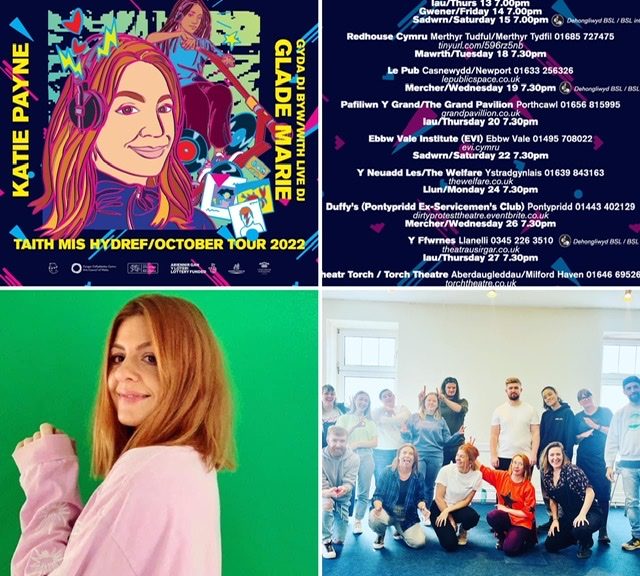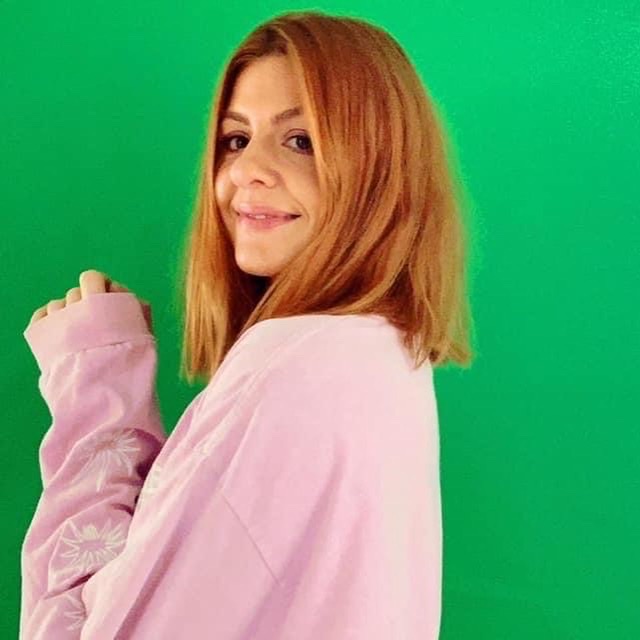
In our latest Playwright interview Director of Get The Chance, Guy O’Donnell chats to Playwright and Actor Katie Payne. Katie discusses her career to date, her play My Mix(ed Up) Tape which tours the South Wales Valleys this October, her writing process and thoughts on opportunities for Playwrights in Wales.
Hi Katie, great to meet you, can you give our readers some background information on yourself please?
Absolutely. My name is Katie Payne – I am a writer / actor born and bred in Pontypridd, South Wales. I moved to London at 18 to go to Rose Bruford Drama College and gained a BA in Acting. Since graduating, I have been acting in theatre, TV and film professionally for the past 15 years and I have been writing for the last 3 years. I was living in London for a long time and only moved back to Wales in the last few years, hiraeth is an actual thing.
So, what got you interested in the arts?
Debbie Reynolds! Well, more specifically Singing In The Rain. I come from a family that also encouraged me from a young age to enjoy the Arts, whether it be film, comedy, dance or music. My Dads the family comedian so I definitely got my funny bones from him, even though my mother swears the dryness is her. My friends helped too, any encouragement as a youngster – whether it be a laugh or a clap makes you feel good – this current climate it translates into likes and comments but back then I loved the feeling it gave me to make people smile or laugh. But yes, Singing in the Rain or Calamity Jane or Meet me In St Louis.
Spending time with my Grandparents meant I got to watch a lot of old musical films and the way they transported me – made me feel magic. I always thought that’s what I want to be. I want to do THAT. That triple threat. But after getting into the National Youth Theatre of Wales, it transpired I would only dance, sing and play piano for the joy of it and acting is where I would revel. Albeit – I do have a tendency of working with music and physicality in most plays that I do… I can’t get away from it and wouldn’t have it any other way.
Can you tell us about your writing process?
I haven’t been writing long. But I am currently writing two TV scripts as well as finishing this play, my first play.
My Mix(ed up) Tape was the first thing I ever started writing (except for a little monologue in the play Little Dogs that I performed with Frantic Assembly and National Theatre Wales a few years back).
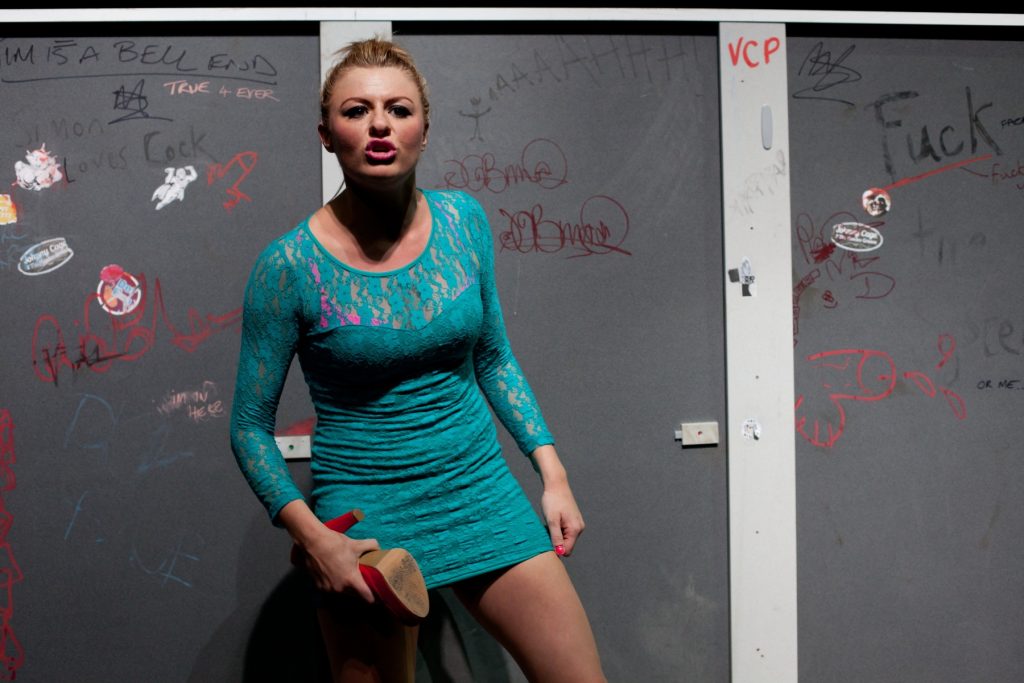
I always knew I could write, somewhere, but it took confidence. That’s all. And Encouragement from my peers. I had to find confidence in my voice, in what I have to say, in how I want to say it. Listen, I have always been a creative – I was never one of those actors that can just turn up, do the lines, do what they have to do, get paid and leave. I always took it upon myself to get involved creatively in the process. I know that’s where my strengths lie. I love acting, but I also love creating. Collaborating. Writing on your own is safe. Writing with people is scary but it also allows you to talk through ideas, figure things out.
Where do your ideas come from?
Ideas? Writing the play is a very different idea process to when I write TV. The play is a personal project – it’s a love letter to Pontypridd, to Wales, to the Valleys. It’s rich with characters and voices and themes that I have encountered or discussed or researched, about a place in which I feel very confident to dive into. I knew I wanted to chat about anger, ADHD and being from the Valleys and what comes with that – but the way in which the ideas go from there on to the page? Well, for this project – it’s music. I find a track and I write. I know these characters or I might start with one character – a voice I know. Then I write and write. I don’t stop to think about it, I just write. Andi Osho (actress, writer) once offered me a great bit of advice when I couldn’t get through to the end, she said “Just write and don’t stop to think or judge it, do that tomorrow or after you’ve finished. The writing/ideas part of your brain cannot work when the judgey part of your brain is making comments” – my advice is JUST WRITE. It’s a lot easier when you take that pressure off and if it’s shit – move on and start again. Writing isn’t easy until you start. Catherine Paskell and Alan Harris have been the guides for My Mix(ed up) Tape, my dramaturgy Angels in helping me make this the play what it is. They are insanely talented at dramaturgy and without them I wouldn’t have been able to find my writing voice.
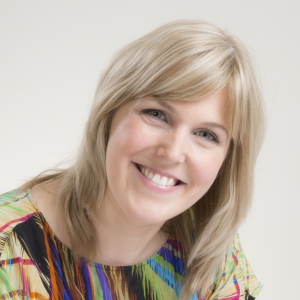
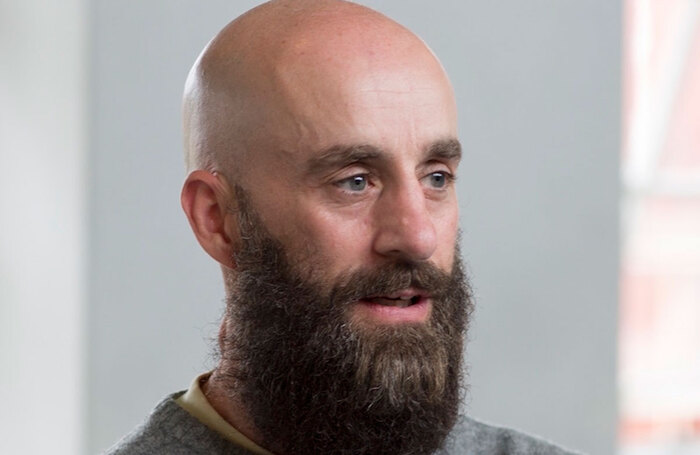
My TV ideas, I write with a writing partner Layo Akinlude, the process is very different – we are very different, from different backgrounds and it works! Trust me – she teaches me on a daily basis and I her, that’s what makes that writing process a proper joy! One of us has an idea – we relay it – if the other likes it – we run with it – then we chat and chat about it until the idea is solid. Then we create a page doc: a document that is a sort of synopsis – beat by beat of what the first ep might look like. We get this as tight as possible and sometimes a production company will buy that idea – just from that pitch doc – we then follow than pitch doc. Sometimes I take a scene, or she does or we write them together. I am a visual person so I have to feel and smell and see a place on the page before I can write it – that’s why describing visuals are really important to me, so I can transport the actor, audience, director right to that place. I think the best thing about writing is collaboration, but also having confidence in what you want to say and how you want to say it.
Can you describe your writing day? Do you have a process or a minimum word count?
I am at my best writer early in the morning or really late at night. When the world is quiet and all that is left is me and my thoughts. I don’t tend to spend a whole day writing. You can bang out a tv scene in literally 10 mins if you’ve plotted it out beforehand. I’ve always got headphones in – I might have the same track on repeat for an hour while I write. I stop when the flow stops. Writing is unlike most jobs – you can’t just keep going. Some days the flow and the ideas are there, sometimes they aren’t and that’s okay. They will come.
Why and where do you write?
I have recently had a baby (well, I say recently – he is almost one) and Jesus, that’s been wild. You don’t have hours and hours to think about characters and ideas – you have small windows and you’re also knackered but I do think in a way, since having him, I am a lot more pro-active. I have a few hours in the morning or late at night and I just hit the ground running, I try not to waste too much time thinking. Where I write? I’ve bought my first house and there is a little room in it that’s snug but has a great window looking out – I either write in front of there or I turn round and write looking a big blank wall. I know that sounds a bit weird – but I find the nothingness of the wall a great place to plot things out. It gives me a sort of blank canvas to place my ideas.
I write because I truly believe not enough stuff is being written by women for women in Wales. Especially the Wales I know. I also want to create more opportunities for young people in Wales – I thought I had to get to London at 18 years old to get into the industry but
1. I was really lucky
2. I don’t want that to always be the case.
The long-term goal is yes, to make stuff that people relate to and give those voices a proper platform but it is also to connect with the next gen and inspire them to get writing, creating, making more work in Wales. There’s a mad amount of talent here and I think sometimes we get forgotten about.
Your latest play My Mix(ed Up) Tape tours the South Wales Valleys this October, I believe the script has been in development with the support of Dirty Protest for some time. Is it possible to give us some back ground on the development of the play and your hopes for the tour?
This play started out with an idea with Catherine Paskell – director of My Mix(ed up) Tape and Dirty Protest about me wanting to create a play with a Live DJ. Cath guided me through all my Arts Council applications and we got the funding to test out the ideas and script in R&D 1 back in 2019 and then the music, visuals and access in R&D 2, during Lockdown. The play has developed into a one-woman comedy/drama with a live DJ – it discusses themes around anger and ADHD and is a love letter to anyone who is a bit of a complicated person trying to navigate “this thing we call life” – bit of a Prince ref there, he features heavily in the show, well not physically the budget couldn’t quite stretch to the afterlife.
You have described your ambitions for the production to be “to make something in the Valleys, that’s relatable, fun, and accessible” What does the Valleys contribute to your creative process and is theatre accessible for people living in these areas?
The best thing about this play is the way it has connected to the audiences it is supposed to serve. There is a lot of anger right now, for a number of different reasons, which I know I don’t have to point out. It was really important for me to make this play in the valleys for the valleys – Pontypridd and RCT have been the muse for the process and I feel like I have only just started, only just scratched the surface. I have had a lot of messages off people thanking me for bringing this form of theatre into the community. It’s a working-class story that I hope is told in a different form. The play has access embedded into it which means it’s accessible to the D/Deaf community – which was very important to me. The BSL interpretation is provided by Sami Dunn.
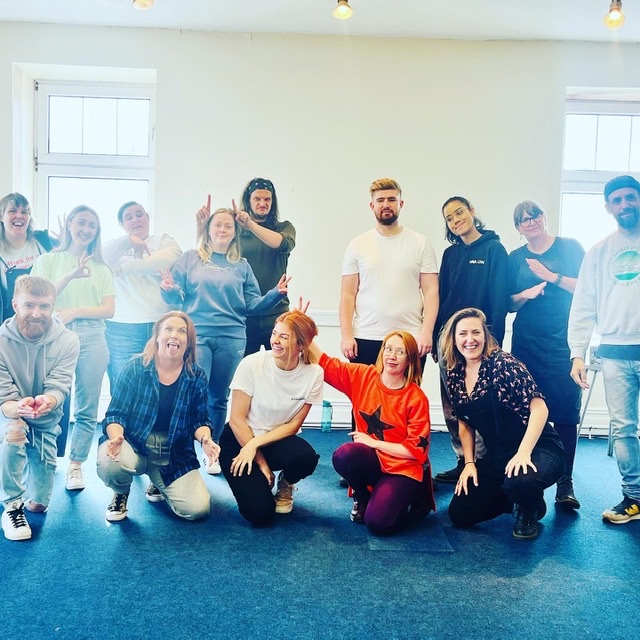
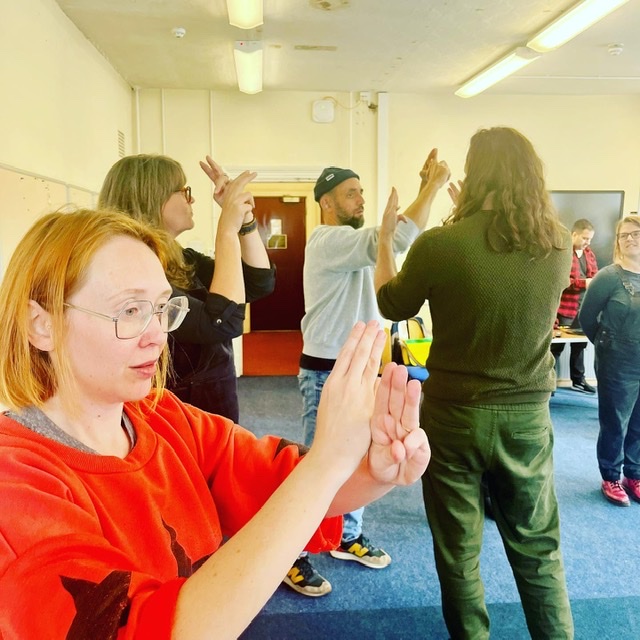
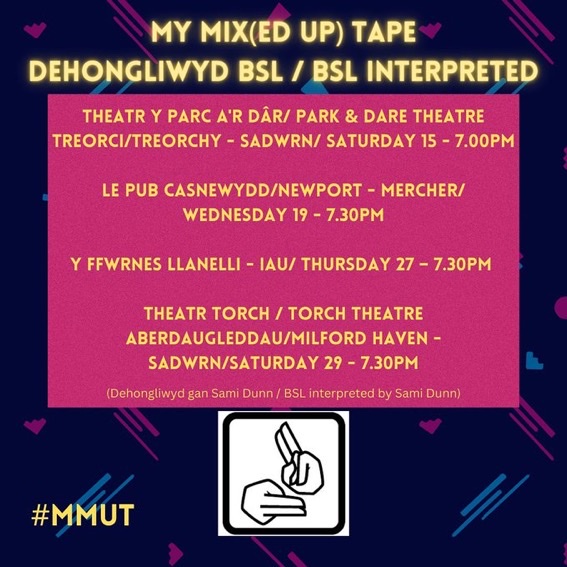
It has a live DJ element – which helps drives the story along and makes it current, it’s fresh new-writing and it has physical theatre / Visual Vernacular embedded into the piece – which a lot of people in the Valleys haven’t have experienced before. I am super proud of the team and what we have managed to bring to RCT.
RCT Theatres have supported the plays development, how did they come to be involved and what’s your relationship with these venues?
Angela Gould at RCT Theatres strive to tell the stories of unheard voices from their communities. They found My Mix(ed up) Tape to be a unique take on storytelling from the prospective of a female Valley’s voice. I have known Angela since I was 13 years old, she used to teach me drama in a local drama club in the YMCA in Pontypridd and I know it made sense to connect her and Dirty Protest together to make this show.
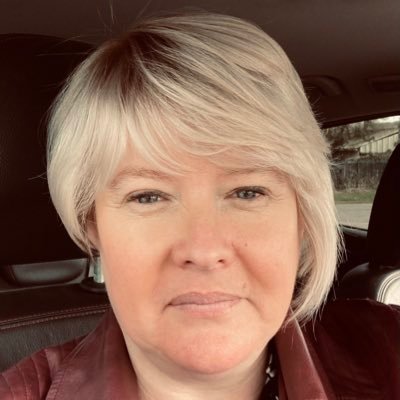
Angela was keen to tell this rollercoaster of a story that is driven with a sick soundtrack by DJ Glade Marie and how it helps underscore a tale of how heartache, tenacity and determination will always win the race. It felt like a homecoming. Our tour starts at the Parc and Dare’s new studio theatre space, Treorchy – which is honestly an incredible space. We then go on tour to a mixture of theatre and community venues around South and West Wales.
The production features a live DJ called Glade Marie, with music featuring so strongly in the play this seems a great choice how has music influenced your writing process and how did the relationship with Glade Marie develop?
I’ve already mentioned how important music was to the writing process, each scene was written to a particular track on repeat. However, the integration of Glade the Live DJ element is something that we explored and figured out during the R&D’s. The relationship in the beginning began as separate, between DJ and music but during the R&D process we developed the language for the DJ as the conscious for the main character Phoebe. The play could not be without the music. We almost had to write two plays – one for the text and then one for the music. The score in which Glade has created with collaborative effort from everyone in the team, truly makes the show shine. I am just so proud that we made it happen.
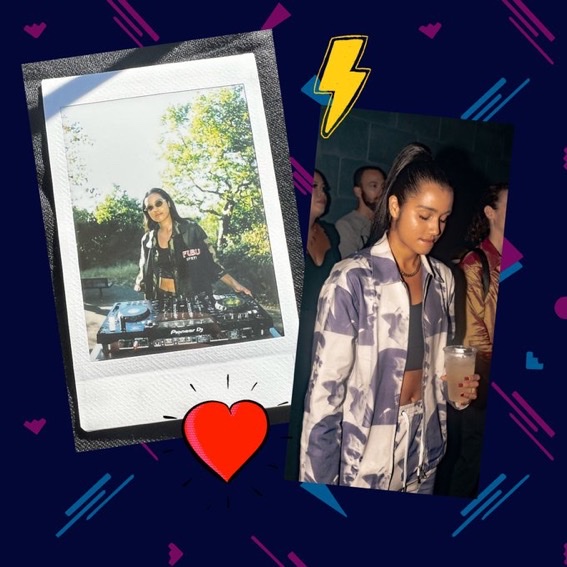
There are a range of organisations supporting Welsh and Wales-based writers. I wonder if you feel the current support network and career opportunities feel ‘healthy’ to you? Is it possible to sustain a career as a writer in Wales and if not what would help?
Quite frankly, I don’t know how to answer this question as I am still quite new to the writing scene in Wales. I don’t know if these organisations and the support they offer are as well advertised as they could be. I also feel that a lot of the same content is being created and a lot of the same people are being used, that’s not a bad thing – but it definitely means things don’t quite progress as much as they could do in Wales. New voices. Money and energy being put into these new voices is how the next gen of greatness is made. I really want to use this play to connect to an audience of makers and doers and hopefully create more work with them.
If you were able to fund an area of the arts in Wales what would this be and why?
Development of New Voices. Have I mentioned New Voices enough?? New plays, new text, new theatre, new writing, new TV ideas. New New New.
What excites you about the arts in Wales?
I am excited about the talent. The people in Wales are the greatest – I just think we need to keep trying to get these voices heard on a bigger scale. Making more stories that push boundaries, that are told through rich real characters – let’s see where we can really go with Welsh Theatre, TV and Film. Let’s take more risks and give a chance to fresh voices.
Thanks for your time Katie

